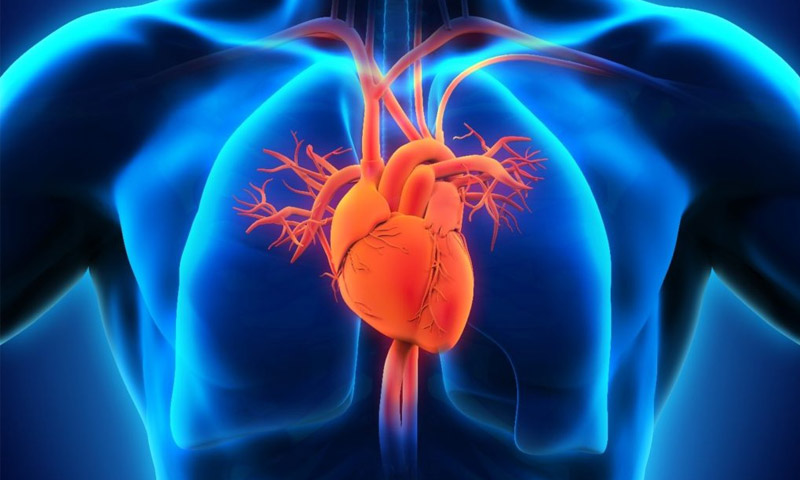One of the most dangerous diseases ever is Congestive Heart Failure. It is the cause of death for scores of people across the world. If you are unaware of how to catch congestive heart failure symptoms and the stages it occurs in, you will be in serious trouble. It can affect men and women both and is an ailment that requires immediate attention. But before we can look at congestive heart failure stages, let us first study its symptoms. Finally, we can look at the kind of treatment it requires.
Table of Contents
What is Congestive Heart Failure?
To accurately identify congestive heart failure symptoms, you must first know what the disease is actually about. Congestive Heart Failure, or CHF, is among the most serious heart ailments ever. It occurs when your heart is under pressure and, thereby, is unable to effectively pump blood through your body. Why does it happen? For one, it could be that the heart muscle is too weak to do its job. Another reason could be that there is another ailment that’s preventing it from functioning effectively. If such a grave disease is neglected, imagine the unfortunate consequences.
To help you understand CHF better, we’ve covered some of the most important congestive heart failure symptoms that you must know to identify immediately. Once you do this, we’ll move on to explaining what congestive heart failure stages look like. In the end, let us look at the treatment options depending on how severe the condition is. Shall we get started, then?
Critical Congestive Heart Failure Symptoms To Know About
There are a number of symptoms to note when it comes to CHF. However, one thing you should note is that not every sufferer of this disease will experience every symptom on this list. Simply put, much of it depends on the type and severity of an individual’s condition. Nevertheless, it’s still a plus point to know about as many congestive heart failure symptoms as you can. Who knows, your knowledge may come in handy to help someone else deal with this painful condition. So, check out the below-listed CHF symptoms!
1. Sharp pain in the chest: If you are experiencing an inexplicable sharp pain in the chest, then it’s probably a sign that you are suffering from CHF. The pain will make it difficult for you to perform even simple tasks and after a point, you will be unable to do much at all. This is an important sign and it must not be ignored.
2. Shortness of depletion of breath: Among the topmost symptoms of congestive heart failure is an acute difficulty in breathing. Many people will experience a lot of trouble breathing even when they are lying down. So, if you are experiencing this, then it is probably time to visit your doctor.
3. Unforeseen bloating: Does it seem like your body is bloated all the time and you can’t possibly think of the reason why? Well, it’s probably because this is one of the most common congestive heart failure symptoms that most people ignore. So, if this is happening to you, please get yourself checked out.
4. Swelling in ankles, feet, hands, or legs: This is different from bloating. When you bloat, your body retains water. When it swells, the feeling is that much more painful. If you have CHF, the body parts mentioned above (and perhaps others) will swell rapidly. Also, this swelling might increase even more right after your workout session.
5. A cough that refuses to go away: We don’t mean the flu. That is normal. What we mean is that one of the most ignored congestive heart failure symptoms is a persistent, stubborn cough. If you seem to be coughing more than normal and it won’t go away no matter what meds you down, it’s time to go to the doc.
6. Sudden weight gain: Why yes, we all enjoy our burgers and fries. It would explain the weight gain. However, if you haven’t had any fast food for a considerable amount of time but seem to be gaining weight, this could mean trouble. Sudden and rapid weight gain is a CHF symptom that you shouldn’t take lightly.
7. Fatigue: Are you feeling tired all the time without actually doing anything? Well, this fatigue can be explained as a CHF symptom. The severity will depend on the different congestive heart failure stages. Regardless, make sure to book an appointment with your physician even if your fatigue isn’t very severe. It could make a world of difference.
8. Rapid heart-rate: Well, the disease means that your heart is unable to effectively pump blood, doesn’t it? So, a result of the strain this puts on your heart is that your heart-rate will be considerably higher than a normal person’s. So, if you feel like your heart is beating against your ribs – literally – it’s time to get it checked out.
9. Unexplained nausea: We all experience nausea at the sight of food and other things we intensely dislike. Sometimes, it’s induced by a particular smell our olfactory system cannot handle. But if you’re feeling nauseated for no apparent reason, this could be one of congestive heart failure symptoms you are suffering from. At times, this will be accompanied by a heavily reduced appetite.
10. Giddiness: Do you feel lazy for no reason? Does it feel like a task just to get a glass of water from the kitchen? Then this could possibly be a CHF symptom you’ve ignored for a while. When your heart doesn’t pump enough blood through your body, it will put a strain on your extremities. As a result, you will experience numbness or sometimes, a tingling sensation.
Congestive Heart Failure Stages-One by One
Now that you know about congestive heart failure symptoms and how to identify them immediately, let us take a look at the stages it occurs in. Read up and pass this knowledge along to anyone who may benefit from it.
Stage 1
A relatively low risk, this stage includes people whose heart hasn’t actually developed CGF yet. They are simply at risk of it due to other serious conditions like high blood pressure, coronary artery disease, or chronic diabetes. Since the condition hasn’t begun yet, this is a good stage to ensure it doesn’t develop by effectively treating the existing conditions.
Stage 2
This is among those congestive heart failure stages where the heart begins to slow down its rate of pumping blood to the body. The result of this is that it can lead to the left ventricle being enlarged. Sometimes, you cannot catch any congestive heart failure symptoms during this stage as largely, sufferers remain asymptomatic.
Stage 3
By this stage, patients will begin to display some of the congestive heart failure symptoms discussed above such as feeling out of breath and getting tired for no reason. However, this stage also includes those who are asymptomatic but are currently getting treated for other issues like high blood pressure and diabetes.
Stage 4
This is among the most severe congestive heart failure stages. By now, most sufferers will display all possible congestive heart failure symptoms even when they aren’t actively doing something. Those who reach this stage will require serious medical attention such as inotropic infusion, circulatory support, or even hospice care.
Major Causes of Congestive Heart Failure
There are no definitive reasons to say that a set number of things cause congestive heart failure symptoms. Different factors are responsible for this occurring in different people. However, we can give you a list of the things that generally cause CHF in most people. Check them out below.
- High cholesterol and/or blood pressure left uncontrolled can lead to congestive heart failure in several cases.
- Congenital heart abnormality is one of the top reasons that many people are affected by CHF.
- Heart attacks in the past may affect the function of the heart muscle and lead it to underperform.
- Obesity may sometimes lead to high pressure on the heart as a result of which, it cannot effectively do its job.
- Smoking, drinking too much alcohol, or using illegal drugs is also among the most notorious reasons ever for congestive heart failure symptoms.
- A serious heart infection can also sometimes lead to CHF. So, sufferers are advised to get their heart function checked out thoroughly before being discharged.
- Asthma, reduced function of the kidneys, and other such medical conditions may also lead to congestive heart failure symptoms in some people.
- Old age can be one of the things that lead to congestive heart failure stages in some people. However, that doesn’t mean that all elderly people will suffer from CHF at some point. It is simply a mere possibility.
How is Congestive Heart Failure Treated?
The treatment for congestive heart failure depends on the stage you are in. For instance, if your congestive heart failure symptoms indicate that you are stage 1, then the treatment will be much simpler than the one that stage 4 sufferers will require. Take a quick look below at the various ways in which this serious heart ailment can be treated.
When it comes to medications, there is a variety that is used to treat CHF sufferers. For instance, Blood Thinners are used on people who have the risk of developing clots. ACE Inhibitors, on the other hand, are used to make sure that the blood vessels are relaxed. This is meant to decrease the pressure on the agitated heart. Certain other types of medical treatments include Beta Blockers, Statins, Vasodilators, Antiplatelet Drugs, and Diuretics among other things.
Implantable Devices are used on people whose congestive heart failure symptoms are highly advanced. What this means is that those who are among the last of congestive heart failure stages may oftentimes require a device to be implanted within the heart for it to function effectively. This can be a Pacemaker or a Defibrillator. An LVAD or Cardiac Resynchronization Therapy are other options. Lastly, if all else fails, a Heart Transplant may be required. Needless to say, that carries its own risks.
Can Congestive Heart Failure Symptoms Be Prevented?
The good news is that yes, in most cases, they can! You need not fret reaching the last and most serious of congestive heart failure stages if you maintain a certain kind of lifestyle. Making a few minor changes will decrease the risk of your catching CHF. Here are some of the things you can do to keep this incredibly grave heart condition at bay.
Maintain a healthy weight
Keeping obesity is among the top ways to prevent congestive heart failure. When the body is heavy, it will automatically put extra pressure on the heart to pump blood. Of course, it isn’t essential or advisable to be super skinny. Just make sure to always keep your body weight ideal as per your height.
Live stress-free
Stress is an important factor when it comes to the causes of congestive heart failure symptoms. Whatever irritates or causes you distress will reflect badly on your heart which in turn will work ineffectively. Thereby, try to live a happy life and keep anything that stresses you out at the bay.
Exercise on a regular basis
Indulging in intense workouts will keep your heart pumping blood effectively. Of course, ensure the workout isn’t too strenuous that it ends up having the opposite effect. Not only is this good for your heart, but it will also help your other organs to stay in shape. Also, it will keep all the extra weight off you! This way, you can avoid all congestive heart failure stages.
Healthy diet
One of the best ways to keep congestive heart failure symptoms away is to eat right. Yes, it’s perfectly okay to indulge in your favorite food once in a while. But for most of the part, try to eat as healthy as you can. This means cutting down on extra salt, sugar, oil, spices, and other things that may harm your body in the long run.





